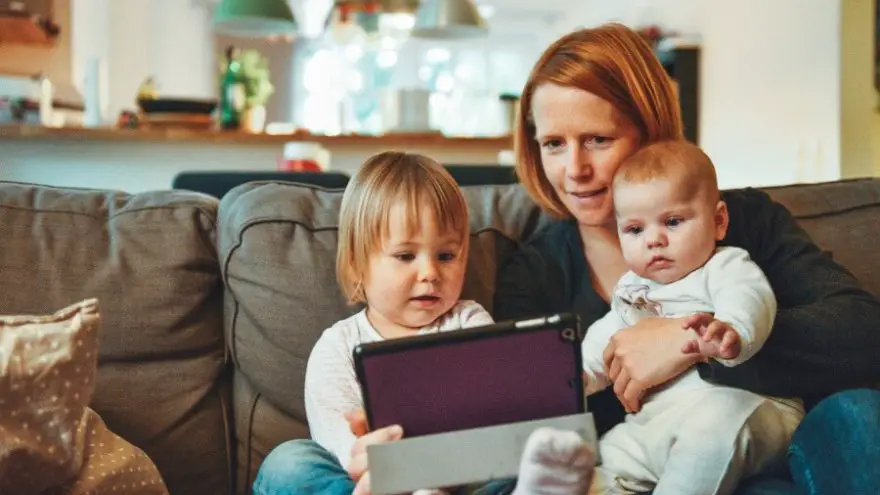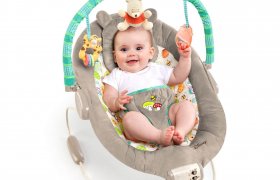Firstborn Jealousy: How to deal with your Kid’s Jealousy

The arrival of a new baby is a joyful moment shared by not only the parents but by the whole family. Relatives send their congratulations, the parents start preparing and the whole world is brewing with excitement again. However, not quite everyone is aware of the arrival of a new baby from the start.
With firstborns, however, breaking the news of a future baby is an entirely different story. For them, it’s not just a simple baby, it’s a new sibling, someone they will have to get used to and grow up with and ideally befriend. The news can be quite the shock for them, but depending on how old they are and as such, how understanding, there are a few ways for you to prepare your firstborn for the arrival of their sibling and help prevent any possible jealousy between the two.
During pregnancy
The first thing to do when you approach the topic with your firstborn is to build in their mind the idea of actually wanting a sibling. Imagine coming home to your child one day with a baby wrapped in blankets in your arms, how do you think they would react? They most likely had no say in the matter of adding to the family or not, so this could easily come off as you not being satisfied with them alone or with how things were in the household up until now. Those feelings can turn into jealousy towards the baby or even violent outbursts towards both the new sibling and you, which you will want to prevent. If the child doesn’t act out, they could also be undergoing emotional distress which they don’t want to exteriorize. Such distress can cause self-confidence and trust issues and affect the child’s development process.
So how can you convince your child that a baby is not a bad thing? Before you tell them the big news, you can ask them questions such as “Wouldn’t it be nice if you had someone to play with while mom and dad are at work?” to see how they initially feel about a new live-in friend.
Whenever you’re confident that your child is open to the idea of a new family addition, you can finally break the news to them, but mind the way you do it. If you have teased them with a new best friend, tell them one is finally on the way! If you’ve told them that they will have a sibling to play with, don’t forget to tell them that you will all have to collectively take care of the new baby until they learn how to play properly, so the child isn’t let down the moment the baby appears and they only know how to eat, poop and of course cry.
The next thing you can do to get your child used to the idea of a future sibling is to involve them in decisions regarding the baby. You can ask them to pick out new toys for them or new clothes or maybe even ask how to decorate the baby’s room or crib, as it will all make the firstborn feel more like a bigger sister/brother rather than someone who was shoved aside while preparations for the incoming baby are made. Giving them the possibility to get involved and it will make them feel wanted, appreciated and responsible at the same time.
Looking back at it, I remember how my own parents brought the news of a little sister to me, although I’m sure I made the process easier by having been begging them for a sibling ever since I turned 4 years old. They only told me that I could finally have my “most wanted sister” 5 years later, though. Despite the long wait, I was still as excited and it was a happy coincidence that I both asked for and received a sister. My parents involved me in the preparation progress, to the point where they even asked me to help them pick a name for the baby and the actually kept it as well!
 After pregnancy
After pregnancy
After the baby is born, you shouldn’t focus all of your attention on them and accidentally neglect the firstborn. Show the child how to handle the baby, how to properly hold them and how gentle they need to be when interacting with them, but don’t leave them alone to play. Keep an eye on them just in case you need to intervene, but if your child is doing something wrong, don’t scold them right off the bat. It can make them unsure about playing with the baby again or make them feel like you’re picking favorites, so instead of saying “play nice!” or “don’t do that!” try explaining to them that the baby doesn’t like this or that done to them.
Once the two start interacting and learning how to play with each other, make sure to praise them both, even for little things. Let your firstborn know that they’re a great older sibling and make them feel appreciated when they hold the baby correctly or help dress or care for them right. This way, they will get used to the concept of being a big brother or sister and they will grow up naturally inclined to take care of their sibling.
Another aspect that you should make sure you aren’t neglecting is the time you spend with your firstborn after the new baby arrives. It’s easy to lose track of time caring for the baby, doing chores and then just wanting a little peace and quiet for yourself, but you shouldn’t lose sight of your older child’s needs either, especially their need to spend time with you. Consider spending time with them while the baby sleeps or take them both to the park to allow the older child to play while the newborn enjoys some fresh air. You could even ask your oldest to pick where to go and fulfill a wish they had for some time ever since the baby arrived, like maybe going for ice cream!
Last but not least, don’t forget to maintain a good level of communication between every member of the household as tensions will most definitely arise with the arrival of a new baby. Talking things out with your children can especially improve the mood of the household and help prevent conflicts or hurt feelings while it will all bring you closer.







